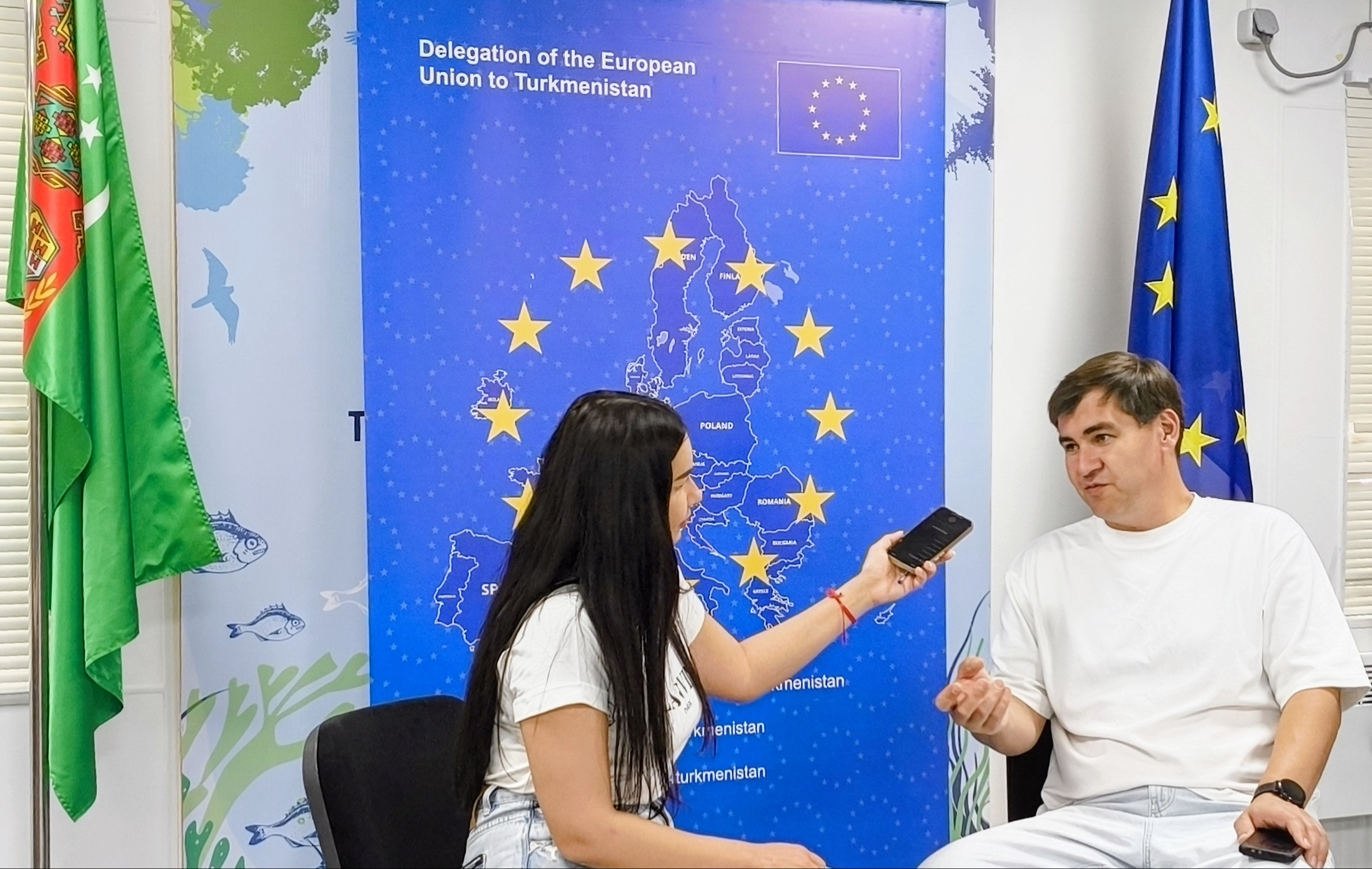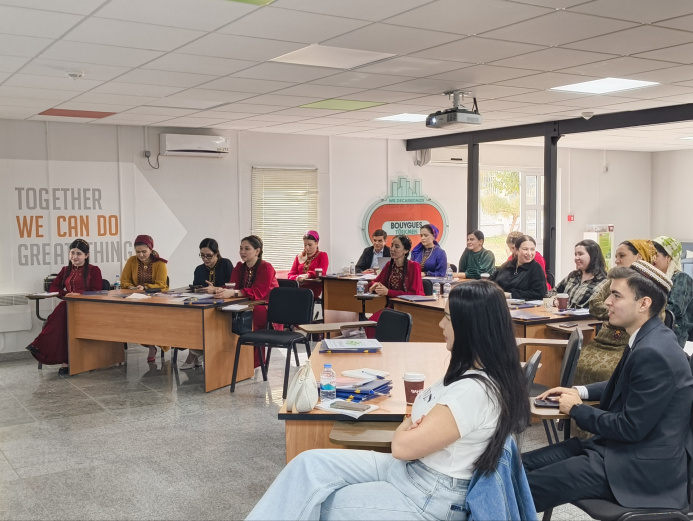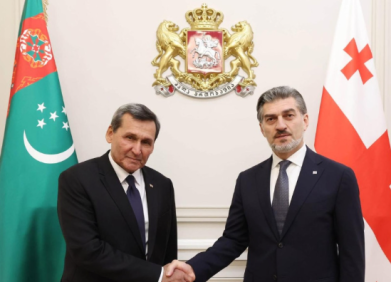AI is Changing Journalism Without Eliminating Responsibility – the Topic of a Workshop in Ashgabat
23.10.2025 | 07:00 |A three-day workshop for young media professionals, organized with the support of the European Union, is underway in Ashgabat. The event's main goal was to improve media literacy, develop critical thinking, and master artificial intelligence (AI) tools in editorial work.
Participants, including aspiring journalists and students, thoroughly studied the fundamentals of mobile journalism, including practical shooting and editing of photo and video materials. Significant time was devoted to developing critical thinking, storytelling, and fact-checking skills, which are the foundation for objective and high-quality reporting.
Media expert from Kazakhstan, Marat Sadykov, summarized the requirements for a modern professional, highlighting three key skills: objectivity – the ability to approach any incoming information neutrally and impartially and verify its accuracy; structuring material – the ability to logically organize the workflow, plan interviews, and structure material in accordance with genre principles and audience demands; technological proficiency – proficient use of modern tools, including AI.

Mr. Sadykov emphasized that integrating artificial intelligence into journalistic work is necessary, but requires a mature approach.
"AI should act as an assistant tool, not a replacement. Its purpose is to facilitate the journalist's work: speed up interview transcription, assist in analyzing large data sets, or suggest a rough outline for a story. However, AI should never make decisions for the journalist during critical evaluation or ethical choices," the expert noted.
Therefore, technological advancement is understood not as blind use, but as the implementation of AI to improve efficiency while maintaining journalistic ethics and responsibility.
Marat Sadykov expressed gratitude to the European Union for its support of such initiatives, noting that such workshops strengthen professional ties in the region and contribute to the unification of media literacy standards.
The expert also highlighted Ashgabat's unique professional and friendly atmosphere, its impressive architecture, and the hospitality of its residents, which create ideal conditions for conducting international educational programs.
This workshop not only provided practical tools but also outlined a strategic vision for the profession. The key conclusion is clear: in the digital age, modern journalists must view AI as a powerful tool for enhancing productivity, not as a substitute. At the same time, technological progress must remain guided by the key principles of the profession—objectivity and fact-checking.
Initiatives such as this are critically important for developing a new generation of media professionals prepared for the challenges of the digital age.
Enejan KEPBANOVA











